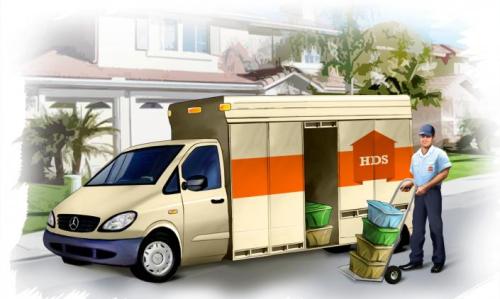

A decade after the epic IPO fails of Webvan, eToys, and Pets.com, the HomeGrocer is back for more!
Here’s a brief refresher for those who have forgotten, as investors clearly have. From the New York Times, November 6 1999:
Webvan Group, an online grocer that has overcome several financial and regulatory obstacles, rolled ahead in its first day of public trading today to achieve a market value of $7.9 billion.
The company was expected to post a loss of $65 million this year — high even by the standards of Internet start-ups — and has forecast operating losses for the “foreseeable future.”
But neither problems with the S.E.C. nor loss projections have sunk Webvan, which has been the darling of an investment community intrigued by the promise of moving the grocery market to the Internet.
The stock price plummeted to 6 cents a few months later, and Webvan filed for bankruptcy in 2001.
Webvan’s founder Louis Borders is now running his own startup incubator in Palo Alto, and his flagship startup is called Home Delivery Service:

The HDS website offers consumers a single online store to shop for fresh foods and general merchandise from the world’s leading retail brands.
If I were a VC, I would totally fund that pitch. A website, you say? Sign me up and let’s party like it’s 1999!
On a more serious note, we’ve learned that ideas are worthless. Execution is everything. Postmates, Instacart, RelayFoods, AmazonFresh, Google Shopping Express, Walmart To Go, all agree that on-demand grocery delivery is a good idea. But none of these services are independently profitable. Yet.
Nobody knows for sure what killed off Webvan. Was it the Dotcom crash? Was it the billions of debt incurred during infrastructure rollout? Was it the fact that it cost Webvan $27 to fulfill an order when there were no delivery charges or minimum order requirements?
Maybe they can get it right this time around. The “patented, automated distribution technology” they cite sure sounds promising.
See Also:
Home Delivery Service: An Introduction
